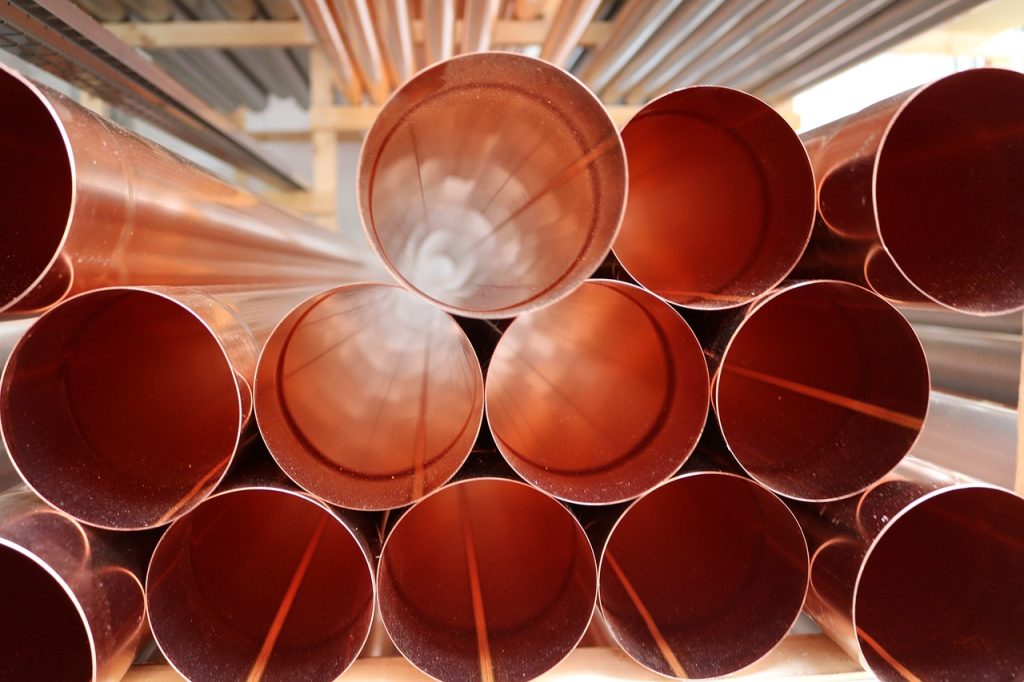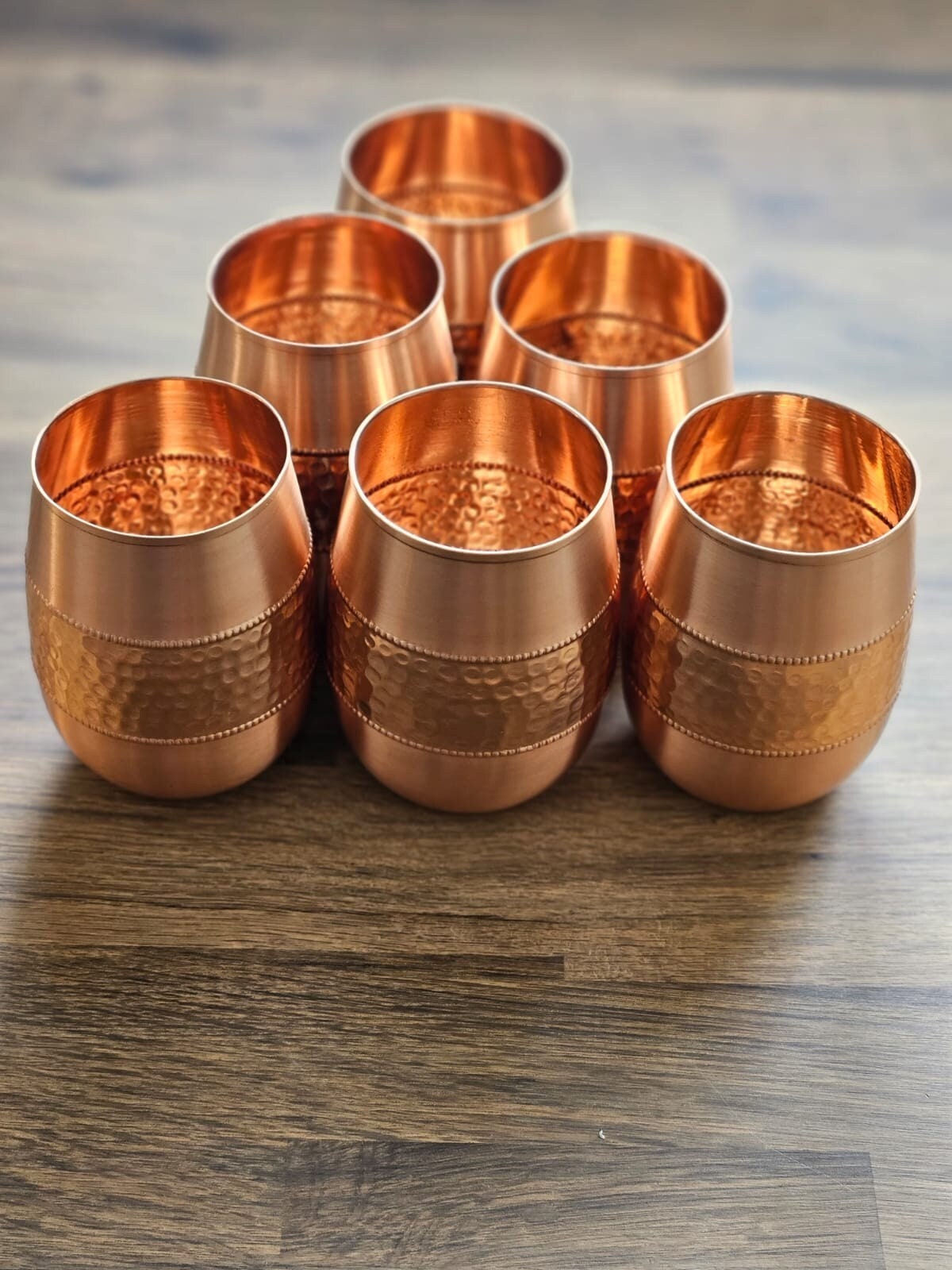Enhancing Your Kitchen Area with Costs Copper Products: Tips and Finest Practices
Enhancing Your Kitchen Area with Costs Copper Products: Tips and Finest Practices
Blog Article
Discovering the Diverse Applications of Copper Products in Modern Industries
Copper products have actually established themselves as important parts across a myriad of modern-day markets, mainly because of their exceptional conductivity, malleability, and resistance to corrosion. From enhancing the effectiveness of electric systems to playing a vital function in renewable resource innovations, the versatility of copper appears. Its recyclability settings it as a sustainable selection in manufacturing and electronic devices. As industries increasingly focus on development and sustainability, the varied applications of copper call for a closer exam, especially concerning their potential effect on future ecological practices and technological innovations.
Electric Applications of Copper
Copper is an important material in the electric sector, making up approximately 60% of the complete demand for non-ferrous metals internationally - Copper Products. Its remarkable electric conductivity, which is almost twice that of aluminum, makes it the preferred choice for a vast array of electrical applications. From wiring systems in commercial and residential buildings to high-voltage power transmission lines, copper ensures effectiveness and reliability in electrical power shipment
Along with wiring, copper is important to the production of electric elements such as generators, transformers, and motors. These parts leverage copper's thermal conductivity and pliability, necessary for warm dissipation and effective efficiency. Copper's resistance to corrosion enhances the life-span and toughness of electrical systems, making it a cost-effective service in the lengthy term.
The growth of sustainable energy sources, such as solar and wind power, has additionally raised the need for copper in electric applications. As sectors transition in the direction of sustainable energy options, copper's duty comes to be much more crucial. Generally, the convenience and performance qualities of copper strengthen its standing as a keystone product within the electric market, driving technology and performance throughout numerous applications.
Plumbing and Piping Solutions
In contemporary plumbing systems, the selection of products substantially impacts both functionality and longevity. Copper has actually arised as a favored alternative as a result of its one-of-a-kind residential or commercial properties, including rust resistance and antimicrobial characteristics. These attributes make certain that copper piping continues to be long lasting and safe for transporting safe and clean water, a crucial factor to consider in domestic and business applications.
Among the essential advantages of copper in plumbing is its ability to hold up against heats and pressures, making it ideal for a selection of applications, from warm water systems to heating and cooling down networks. Additionally, copper's versatility enables less complicated setup in intricate piping formats, lowering the danger of leakages and failures.
One more noteworthy advantage is copper's long life-span, frequently surpassing 50 years with correct maintenance. This long life not only lessens replacement prices but additionally adds to sustainable techniques by reducing waste. In addition, copper's recyclability aligns with modern ecological standards, advertising a round economy within the plumbing sector.
Copper in Renewable Resource
The versatility of copper prolongs beyond plumbing applications, playing a vital role in the you can try here sustainable power field. In solar panels, copper is made use of in photovoltaic or pv cells and electrical wiring, assisting in efficient power conversion and transmission.

Moreover, as the worldwide demand for electrical vehicles (EVs) increases, copper's function in battery systems and billing facilities becomes a lot more considerable. The product's capacity to conduct electrical go to these guys power efficiently is essential to the efficiency of EV batteries, improving range and charging rate.
Copper's Function in Electronic devices
Electronic devices making counts heavily on copper's phenomenal residential or commercial properties, especially its high electrical conductivity and thermal performance. These features make copper an excellent choice for a variety of digital parts, consisting of ports, circuit card, and electrical wiring. The steel's capability to efficiently transmit electric signals makes certain very little power loss, which is vital in high-performance electronic devices.
Moreover, copper's thermal conductivity plays a substantial duty in warmth dissipation, shielding delicate components from overheating. This is specifically crucial in modern-day electronics, where compact layouts Check Out Your URL cause enhanced heat generation. Copper is also preferred for its malleability and ductility, permitting it to be quickly formed into detailed styles that meet the needs of advanced digital applications.
With the increase of consumer electronics, telecoms, and electrical vehicles, the demand for copper in the electronic devices market continues to expand. Hence, copper remains a cornerstone product in the ever-expanding field of electronic devices.
Cutting-edge Uses in Manufacturing

One significant application is in additive production, where copper-based materials are used in 3D printing processes. This permits for the creation of light-weight elements and intricate geometries, particularly in the aerospace and vehicle sectors. In addition, copper's thermal conductivity makes it an optimal selection for heat exchangers, enhancing performance in industrial cooling systems.
In addition, the rise of clever production has seen the consolidation of copper in IoT tools, where its conductive capabilities support advanced sensing technologies. In the world of eco-friendly power, copper is essential in the production of photovoltaic panels and wind turbines, facilitating much more efficient energy conversion and distribution.
As markets strive for sustainability and innovation, copper's flexibility and performance continue to position it as a critical product, driving innovations in production and adding to the growth of smarter, more efficient items.
Verdict
The indispensable function of copper in renewable power and its essential feature in electronics emphasize its value in progressing sustainable techniques. Jointly, these applications illustrate copper's critical contribution to technical development and industrial efficiency in modern society.
From improving the efficiency of electrical systems to playing a crucial function in sustainable power technologies, the convenience of copper is apparent. As sectors increasingly prioritize advancement and sustainability, the varied applications of copper require a closer assessment, particularly regarding their prospective effect on future ecological techniques and technological innovations.
The growth of sustainable power resources, such as solar and wind power, has actually better boosted the need for copper in electric applications. In general, the adaptability and efficiency features of copper strengthen its condition as a foundation product within the electric field, driving innovation and efficiency throughout various applications.
The flexibility of copper prolongs beyond plumbing applications, playing an important function in the eco-friendly power field.
Report this page